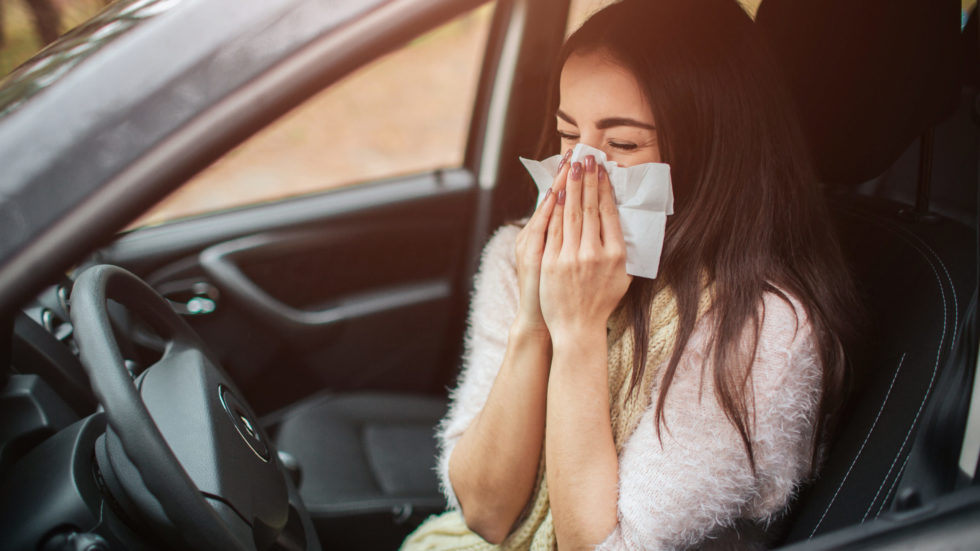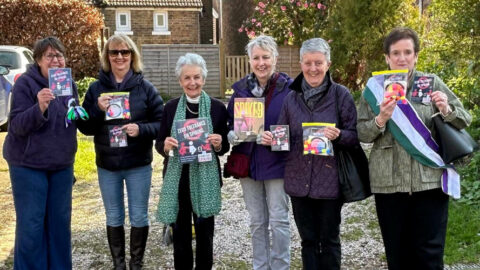Driving With Hay Fever

Driving With Hay Fever
With higher than average pollen counts at this time of year, hay fever and seasonal allergies will start to take their hold on sufferers and lead to very uncomfortable and unpleasant sneezes and wheezes. It is estimated that around 18 million people in the UK are affected by conditions associated with irritating pollen from trees, plants and grasses, what do you do if you are a driver who suffers from hay fever?
Driving in the summertime can be a great experience, exploring new roads and doing it in typically light and warm conditions – you can even enjoy a drive with the windows, or even roof down and take in the summer air. However, if you suffer from hay fever or a pollen allergy this might not be such a good idea, and if you are taking medication to fight it, you need to be aware of side-effects on your performance.
How you treat your hay fever condition will depend largely on your type of allergy and the severity of the symptoms which you suffer from. Among the typical symptoms of hay fever and pollen allergies are a persistent itchy and or runny nose, hard sneezing, and sensitive irritated itchy and watery eyes, all of which present serious challenges to motorists when it comes to driving safely on the roads.
Some hay fever remedies can have a real effect on driving performance and ability, reported side-effects include drowsiness, reduced reaction times and impaired vision – when it comes to the remedy that you choose, always consult your GP or pharmacist for clarity – know whether you can still drive whilst taking the medication and whether if you can, only drive after a number of hours after taking the medication.
Top Tips For Keeping Safe On
The Road With Hay Fever
Where hay fever or a pollen allergy has a debilitating effect on you, or the medication you are taking is having a serious impact on your driving performance, it is best to avoid driving, leave your car keys at home and use public transport, book a taxi or ask a friend or family members for a lift. However, if your symptoms are mild, you can follow some simple top tips to help keep you and other road users safe.
-
-
-
-
-
-
-
- Clean your car thoroughly to remove any dust and pollen,
where possible use a valeting service - Drive with your windows closed and use air conditioning
set to recirculation mode when it is hot - Use non-drowsy medication where possible, seek
professional medical advice on he right medication - When you feel a sneezing fit coming on, park up
as soon as you can safely and legally
- Clean your car thoroughly to remove any dust and pollen,
-
-
-
-
-
-





